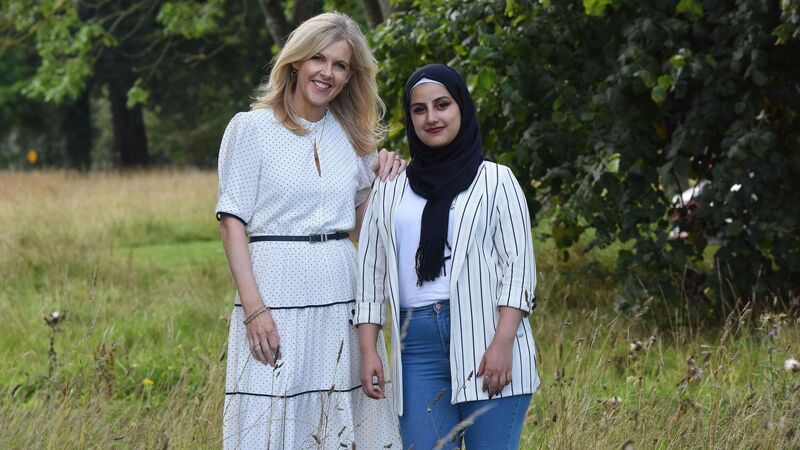‘I was trying to explain it to my own children’: writing a kids' book on the plight of refugees

Sinead Moriarty and Sarra al-Hariri. Photograph Moya Nolan
When Sinéad Moriarty and Sarra al-Hariri met three years ago, it was friendship at first sight. And it is friendship which is at the core of the book that brought them together. Sinéad met Sarra, who is originally from Syria and now lives in Wexford, when she had just completed the first draft of The New Girl, which tells the story of Ruby, an Irish girl, and Safa, a Syrian girl, who form a bond that enables them to face the different challenges in their lives. Sinéad wrote the book, her first for younger readers, having seen the harrowing footage of refugees’ bodies being washed up on the beaches of the Mediterranean.
“I had written the first draft and I contacted the Refugee Council because I wanted to talk to someone who had actually experienced what it was like to be in this situation. They put me in touch with Sarra, who was doing her leaving cert at the time. I drove down to Enniscorthy on a filthy November night, and I met her, her mum and her sister. We sat down and chatted for hours and we have become really good pals. I am so proud of her, she is the most incredible young woman,” says Sinéad.







